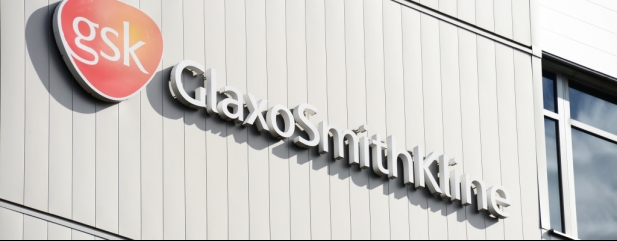Archived article
Please note that tax, investment, pension and ISA rules can change and the information and any views contained in this article may now be inaccurate.
The market is far too pessimistic on GlaxoSmithKline

Surprisingly shares in pharmaceutical company GlaxoSmithKline (GSK) are trading below their March lows and have underperformed European and US peers by 18% year-to-date.
The shares trade on a PE (price-to-earnings) of 11.4, roughly half of the valuation of peer AstraZeneca (AZN) while the company has a dividend yield of 6.1% based on the 80p per share payment that the company has committed to maintaining. Although, it’s worth pointing out that some analysts are sceptical and expect dividend cover to be tight in 2021.
We believe the cash generating nature of Glaxo’s business as well as the increasing strength of the cancer franchise and growing vaccine business make the current price an attractive risk-to-reward proposition.
Leading Vaccine Franchise
Glaxo is global vaccine manufacturer with a leading 32% share of the $30 billion a year market, throwing off strong cash flows.
As well as strong positions in childhood vaccines, meningitis and the flu, Glaxo’s most successful vaccine in the last couple of years has been for shingles which is a painful condition caused by the reactivation of the chicken-pox virus.
The company’s vaccine Shingrix has proven to be 90% effective in the over 50’s age group and analysts at Liberum expect Shingrix to be a key driver of the vaccine division through to the end of the decade. New manufacturing capacity is due to come on stream in 2023 which will see the drug distributed in markets outside the US, especially China. US sales this year are expected to be around $2 billion.
Growing oncology franchise
The second growth driver not priced into the shares is the potential of the cancer franchise which has a strong pipeline thanks to the $5.2 billion acquisition of Tersaro. Liberum forecasts that revenues will grow from under $500 million towards $4 billion over the next decade.
Key to reaching these projections will be the performance of ovarian cancer drug Zejula and its Blenrep drug for treating multiple myeloma, a type of bone marrow cancer, a market worth around $20 billion a year. The drug has completed phase three trails and gained approval in the US in August.
Unlocking value in Consumer Healthcare
In 2018 Glaxo and Pfizer agreed to merge their respective consumer healthcare businesses with annual revenues of $9.8 billion, with a view to spinning-off the unit sometime in 2022.
Glaxo has targeted annual cost savings of $500 million while incurring cash costs of $900 million which would be covered by a divestment of assets of up to $1 billion. The goal is to double operating margins to mid-20’s by 2023.
UPDATE:
The original article incorrectly had the share price at £12.21. The price at the time of writing was £13.21. We have updated the data including PE and yield. We apologise for any confusion.
Important information:
These articles are provided by Shares magazine which is published by AJ Bell Media, a part of AJ Bell. Shares is not written by AJ Bell.
Shares is provided for your general information and use and is not a personal recommendation to invest. It is not intended to be relied upon by you in making or not making any investment decisions. The investments referred to in these articles will not be suitable for all investors. If in doubt please seek appropriate independent financial advice.
Investors acting on the information in these articles do so at their own risk and AJ Bell Media and its staff do not accept liability for losses suffered by investors as a result of their investment decisions.
 magazine
magazine









